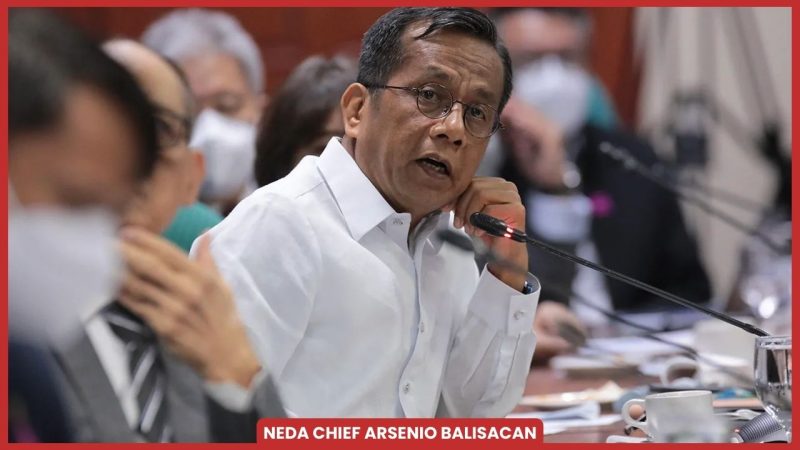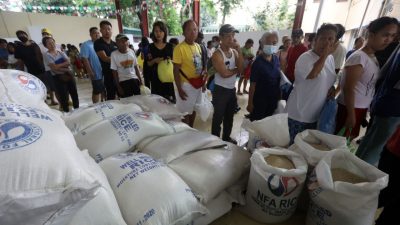MANILA – The National Economic and Development Authority (NEDA) Board, under the leadership of President Ferdinand R. Marcos Jr., has given its nod to a series of significant programs and projects with a combined budget of approximately P269.7 billion.
During a televised briefing at the Malacañan Palace in Manila, NEDA chief Arsenio Balisacan announced that the approved initiatives include a P4.5 billion plan for the enhancement, expansion, and ongoing maintenance of the Bohol-Panglao International Airport.
“This unsolicited public-private partnership (PPP) project aims to boost passenger capacity and enhance the overall passenger experience at the Bohol-Panglao International Airport,” explained Balisacan.
The expansion will initially increase the airport’s capacity from two million to 2.5 million passengers annually. After the upgrade, it is expected to accommodate up to 3.9 million passengers each year.
“We anticipate that this project will stimulate tourism, leading to the creation of more high-quality employment opportunities,” added Balisacan.
Balisacan also disclosed that the NEDA Board has given the green light to the P392 million Dialysis Center PPP Project, which aims to expand the Renal Center Facility at the Baguio General Hospital and Medical Center. The project intends to raise the number of active hemodialysis machines from 30 to 108 by 2029.
“This expansion will enable the Baguio General Hospital to offer more affordable dialysis treatment to a larger number of chronic kidney disease patients,” stated Balisacan.
In addition to these initiatives, Balisacan reported that the NEDA Board has confirmed its approval for the second round of additional financing for the Infrastructure Preparation and Innovation Facility. This financing is aimed at improving and expediting the implementation of infrastructure flagship projects (IFPs).
The Infrastructure Preparation and Innovation Facility provides the Department of Public Works and Highways and the Department of Transportation with improved financing methods and project preparation capabilities.
“The second round of financing will expand the scope to include more Infrastructure Flagship Projects (IFPs), enabling a quicker implementation of these projects,” according to Balisacan.
The total project cost is P13.08 billion, with P11.38 billion to be financed through Official Development Assistance from the Asian Development Bank.
The NEDA Board has also confirmed its approval of the Green Economy Program, designed to enhance the capacity of national and local government units, as well as the private sector, to promote and sustain green economy activities. This includes advancing the circular economy, reducing waste and plastic use, and increasing energy efficiency and renewable energy deployment. The program will be funded by a P3.62 billion grant from the European Union.
To ensure the sustainability and maximize the economic benefits of previously approved infrastructure projects, Balisacan reported that the NEDA Board has sanctioned certain changes to the Bataan-Cavite Interlink Bridge and the Cebu Bus Rapid Transit (BRT) project.
“The cost of the Bataan-Cavite Interlink Bridge (BCIB) project will be raised to P219.3 billion from P175.6 billion, and the implementation period extended until December 2029,” Balisacan explained.
This project involves constructing a 32.15-kilometer bridge across Manila Bay, significantly reducing travel time between Bataan and Cavite from four to five hours to just 30 to 45 minutes. It is also expected to alleviate traffic congestion in Metro Manila as travelers going to and from Bataan or Cavite can use the BCIB as an alternative route.
For the Cebu BRT project, the updated plan will now include mixed traffic sections from Bulacao-Talisay, SRP-Talisay, and IT Park-Talamban.
Balisacan noted that there will be an increase in the number of stations and terminals, route optimization, and an overall increase in the number of buses.
The project cost will be raised to P28.78 billion from P16.3 billion, with an extended implementation period until the end of December 2027.
The loan validity from the Agence Française de Développement (French Development Agency) and the World Bank will also be extended until September 2027.
“With these approved projects, the Marcos Administration reasserts its commitment to vigorously advance infrastructure development in pursuit of our medium-term development objectives, which include generating more high-quality jobs and improving the lives of all Filipinos,” concluded Balisacan.
(ai/mnm)







